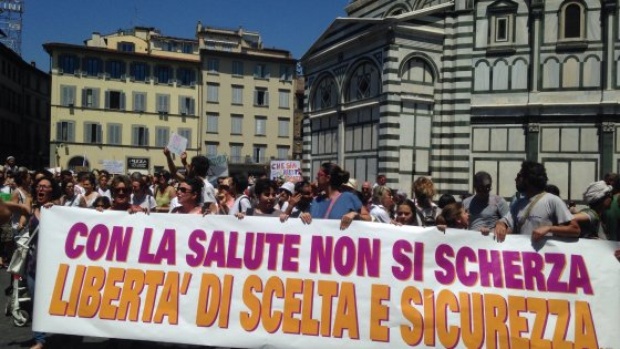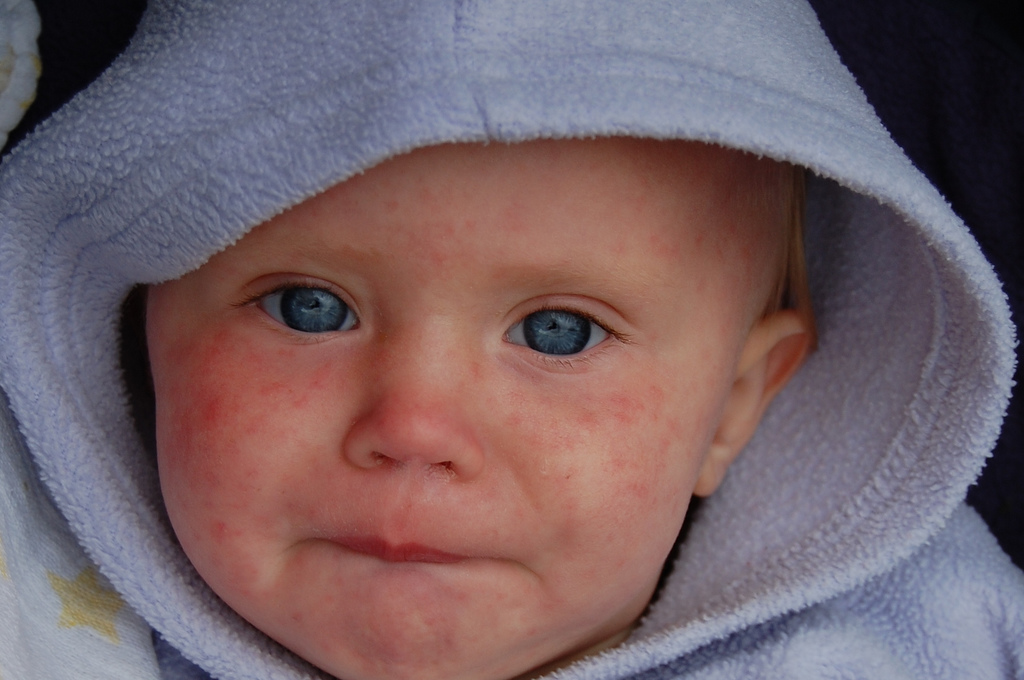Populism is dangerous and puts public health and the economy at risk. But it is hard to resist. Populist politicians thrive on fake news: it is so much easier to fuel people’s emotions if you feed them fabricated news of imaginary crises.
Italy is a harbinger of things to come in liberal democracies. It is where political change often happens first. The largest communist party in Europe outside the Soviet Union was in Italy; yet it was the first to go after the fall of the Berlin Wall. Berlusconi, a showy media tycoon who came to power in 1994 was a proto-Trump.
Now, two imaginary crises are looming in Italy: one threatens public health, the other concerns immigrants, turning them into a brake on the economy when they could be a booster. We shall examine them in two articles, starting with the dangerous decision taken this fall by the Italian government to drop obligatory vaccination for children entering school.
Populist Threats to Public Health
Decisions taken by populist leaders often have deeply damaging consequences on public health. For example, when Trump reverses regulations of the Environmental Protection Agency to give a boost to the coal and steel industries, the impact on public health is overlooked by Trump’s base. The EPA warning that it could lead to some 4,500 deaths per year falls on deaf ears. Everyone feels this concerns someone else, they couldn’t possibly die from a cloud of smog, could they?
For the time being, nothing has happened in the U.S., it’s too early in the game to see problems on the ground. Not so in Italy. The problem brought on by the new populist government concerns vaccination of children first entering schools.
Everything began with fake news fueled by Beppe Grillo’s blog falsely alleging that vaccines lead to autism. Grillo’s blog is read by millions of Italians and he is an important public figure. He is the founder of the anti-establishment Five Star Movement that came to power in March 2018. Since Grillo is barred from holding public office, Luigi Di Maio took the helm of the new government, together with rightist League leader Matteo Salvini,
Vaccines Do Not Lead to Autism in Children
Starting in 2015, protests against vaccination erupted across Italy. But the risk of autism was just one of the allegations. Vaccines were suddenly seen in Italy as the cause of an astonishing range of diseases, from cancer to allergies.
One Five Star Movement senator even called vaccine scars “branding for beasts”. The implication being that vaccines are just for dumb animals, not humans. And who wants to be seen as dumb? The fear of vaccines even spread to pet owners: could vaccines made dogs autistic?
Perhaps you are laughing, but this is no laughing matter.
First consequence of the protests:, Measles incidence in Italy was suddenly on the rise again. The number of measles cases in Italy climbed six-fold, from 843 in 2016 to 5,006 in 2017. And measles is no joke:
Panic spread among responsible health officials and the previous government (in charge till the March elections that brought the Five Star movement to power) worked hard on an information campaign and on tightening the obligation of vaccination for children. But after the Five Star Movement won the March 2018 elections, the move to abolish the obligation to vaccinate children attending schools became a reality.
The parliament voted in August to allow all parents to send their children to school without having to vaccinate them. A sort of reprieve was obtained, in that the new government decreed parents could send their unvaccinated children to school, provided they made a declaration that they would vaccinate them by March next year. But this was seen by many as merely a short hiccup on the way to total obliteration of the need to vaccinate children.
With Populism, a Public Health Crisis in the Making
Others (including myself) saw this as a public health crisis in the making. Over the next six months, children without immunity will be exposed to unnecessary health risks. In particular from measles. Why do parents ever take such risks for their children? The poster bandied about in anti-vaccine protests explains it:

In the photo: Women protesting in Florence, Italy against obligatory vaccination for children entering school. The slogan reads: “No joking with health – Freedom of choice and Safety” Source: article in Czech press: “Italy: Despite massive protests, the government has enforced compulsory vaccination” (referring to the previous government’s policies)
The poster reads: “No Joking with Health – Freedom of choice and Safety” Clearly parents are misled into thinking they are doing the right thing by their children. That they are making the right choice for their children’s safety. Sad. Because those who will pay for their parents’ mistake are innocent children.
That the danger from vaccination was debunked by medical experts over the past twenty years in the U.S. and elsewhere doesn’t matter. People believed it was true – in Italy as in the rest of Europe and the United States.
Four people died in Italy since January 2018, including a 10 month-old baby. And France is panicked, with three deaths since January. Worse, 41,000 people across Europe are affected, a record high, compared to only 24,000 in 2017. The country worst hit is Ukraine (half the cases) followed by France, Italy, Greece, Serbia and Russia, all with more than a thousand cases. And the World Health Organization has warned:
When one person has #measles, 90 percent of the people they come into close contact with will become infected, if they are not already immune. #VaccinesWork! https://t.co/Arbo3hY7dv pic.twitter.com/N1xHY4emAX
— World Health Organization (WHO) (@WHO) August 20, 2018
Vaccination is key to stop the measles epidemic from spreading. How come people are not listening and not vaccinating their children? Because they believe in the siren song of populists, a song that has many verses, which could be summarized thus:
- Scientific evidence is fake news; don’t believe the experts, they are part of the establishment, of the “corrupt elite”, they follow an agenda that works against you;
- Listen to your inner self, follow people close to you, join your community and you will be safe
- Trust in your community leaders, follow them and reject establishment politicians
Why does such a “siren song” work? Bottom line, how can one honestly reject scientific evidence?
In a word, it is because people want to believe in fake news. They are comforted in this because their neighbors and friends do the same. There is safety in numbers.
The best explanation for this apparent irrational behavior was first given a long time ago, in 1979, by two psychologists, Daniel Kahneman and Amos Tversky, in a seminal paper that literally founded a new branch of economics, behavior economics: “Prospect Theory: An Analysis of Decision under Risk”. The ideas they presented found their culmination in Kahneman’s 2011 bestseller Thinking Fast and Slow.
In this book, Kahneman brilliantly explains how two thought systems shape our judgments and decisions: System 1 which is fast, intuitive, and emotional and System 2, slower, more deliberative, and more logical. Populists speak to System 1. Hence, the motives for behaving irrationally are varied and complex. They have to do with the compelling need to avoid loss rather than consider other options, combined with the instinct to react quickly without taking the time (and making the intellectual effort) to consider those other options.
Intelligence and education don’t enter the equation, even highly intelligent and educated people will follow the crowd. If you don’t believe that, consider how people readily follow fashions, throwing out perfectly serviceable clothes.
The results (negative) are always the same, as the example of Italy proves.
EDITOR’S NOTE: THE OPINIONS EXPRESSED HERE BY IMPAKTER.COM COLUMNISTS ARE THEIR OWN, NOT THOSE OF IMPAKTER.COM.
Featured Image: Measles Source: Dave Haygarth Flickr










